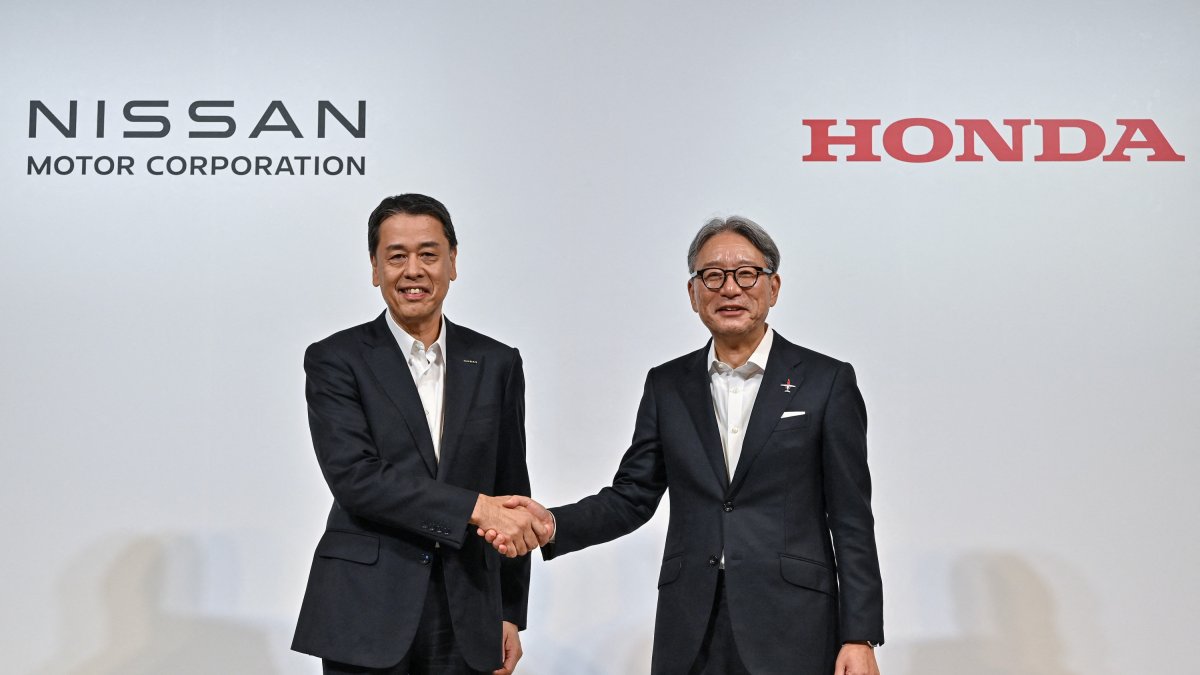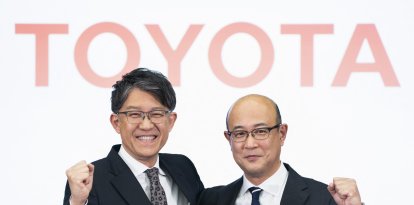Honda and Nissan explore a merger amid trade problems in the U.S. and China
An alliance of this caliber would allow the two Japanese companies to gain momentum and try to compete against industry leader Toyota and Chinese manufacturers.

Nissan and Honda leaders shake hands
The automotive boom of Chinese automakers, coupled with the sustained great success of Japanese automaker and manufacturing leader Toyota, is generating a move that, until a few years ago, seemed unlikely in the automotive market: a potential merger between Honda and Nissan.
According to several reports, after constant approaches, the historic Japanese manufacturers, which are going through commercial problems in China, are evaluating a historic alliance to try to face their main local rival, Toyota (leader in manufacturing and global sales), and the Chinese manufacturers such as Geely and BYD, which, surprisingly, are experiencing an important boom in the electric and hybrid car sector.
According to a Bloomberg report, another well-known Japanese manufacturer, Mitsubishi Motors, could be included in talks for a major merger of mid-sized and respected competitors in the market.
To give an idea of Toyota's pace and level of sales, Nissan, Honda and Mitsubishi sold a total of four million cars worldwide in the first six months of the year, while Toyota alone sold 5.2 million vehicles.
Mitsubishi already has equity ties with Nissan, which recently downgraded its equity stakes and achieved independence from French automaker Renault while Honda successfully distanced itself from General Motors Co.
The news comes while Nissan not only maintains commercial problems in China, but also in the United States, countries where it has its main markets. The Japanese manufacturer saw its profits plummet 93.5% in its fiscal first half and is now forced to lay off 9,000 people.
Nissan's crisis comes while its commitment to electric mobility has not yielded the expected results. They have not adapted quickly and efficiently to the market for electric vehicles and plug-in hybrids.
Another stark reality hitting Honda and Nissan is that, after mega-optimistic forecasts, the electric market stagnated for most manufacturers except for top-tier competitors - such as Tesla- and rivals that managed to come up with very affordable alternatives, such as Chinese manufacturers.
However, a merger, which would be complex and only in the evaluation phase, would help both manufacturers by sharing the high technological development costs. According to Tatsuo Yoshida, senior automotive analyst at Bloomberg Intelligence, Nissan would also benefit significantly, as its financial problems would be less of a concern in the short term.

























